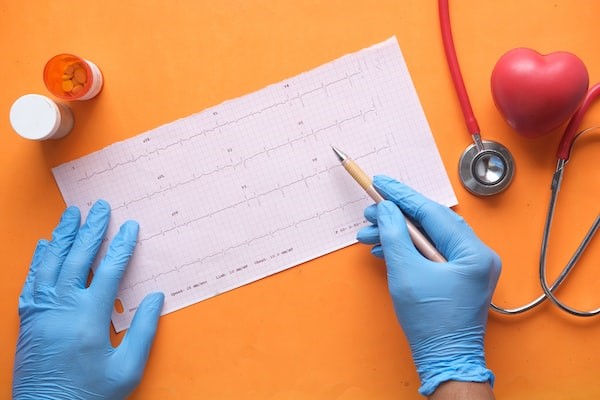Your heart is one of the most important parts of your body. It’s responsible for pumping blood throughout your body, providing your tissues with the oxygen and nutrients they need to function. While most of us know that our heart health needs to be a priority, most of us don’t know much about how our hearts actually function and what common problems we may experience. The good news is that there are plenty of resources that can teach you everything you need to know about your heart and what you should do if you suspect that you may have some type of heart problem. If you want to learn more, keep reading to find out how the heart works and what can go wrong.
How does the heart work and what can go wrong?
First, you should be aware that if you suspect you may have a heart problem, you should make an appointment with a cardiologist as soon as possible. Look for a reputable office with years of experience, like this one that provides cardiology Los Angeles. Many people don’t realize that heart problems can occur in people of all ages. If you’re experiencing any unusual symptoms, it’s critical to see a cardiologist as soon as possible. Some common symptoms of heart problems include shortness of breath, chest pain, and dizziness. Persistent and sudden chest pain could indicate a heart attack, so you should go directly to the emergency room and follow up with a cardiologist.
The heart is a muscle that pumps blood throughout the body. The heart is divided into four chambers: two upper chambers called atria and two lower chambers called ventricles. The right side of the heart pumps blood to the lungs to pick up oxygen, and the left side of the heart pumps blood to all other parts of the body. The wall of the heart has three layers: an inner layer called the endocardium, a middle layer called the myocardium, and an outer layer called the epicardium.
When the heart contracts, it squeezes blood out of the chambers on the left side and into the aorta. The aorta is a large artery that branches off and supplies blood to all other parts of the body. The valves in the heart keep blood flowing in one direction: from the left side of the heart to the rest of the body. Blood pressure is the force of the blood pushing against the walls of the arteries as it travels through them. The higher your blood pressure, the harder your heart has to work to push blood through your system. High blood pressure can damage your arteries and organs, including your heart.
What can you do to improve your heart health?
Sleep is an essential component of overall health and well-being. Not getting enough sleep can lead to a variety of health problems, including heart problems. Lack of sleep can lead to obesity, high blood pressure, and diabetes, all of which are risk factors for heart disease. Studies have also shown that people who don’t get enough sleep are more likely to have a heart attack or stroke. Sleep deprivation can also increase levels of stress hormones, which can contribute to heart disease. If you’re not getting enough sleep, try to make some changes to your sleep habits. Set a specific sleep schedule, avoid caffeine and alcohol before bed, and try not to use your screens too much at the end of the day. If you continue to have trouble sleeping, talk to your doctor.
Interesting information about streameast
As you might imagine, a heart-healthy diet is a key part of maintaining a healthy heart. Eating nutrient-rich foods can protect your heart from disease and keep your cholesterol and blood pressure levels in check. A heart-healthy diet should include fruits, vegetables, whole grains, lean protein, and healthy fats. Some of the best fruits and vegetables for a heart-healthy diet are berries, apples, leafy greens, cruciferous vegetables, and tomatoes. These foods are packed with antioxidants, which can protect your heart from damage. If you’re not sure what to eat, your cardiologist can put together a meal plan that supports your needs.
Our heart is the organ that keeps us alive. It’s responsible for pumping blood throughout our bodies and delivering oxygen and nutrients to our cells. That’s why we all need to take steps to protect our heart health. Seeing a cardiologist on a regular basis is the best way to ensure you catch any heart problems early so you can treat them. You should also ensure that you’re getting the rest that you need and eating a heart-healthy diet. If we all take these steps to protect our heart health, we can protect ourselves and keep our hearts healthy.












